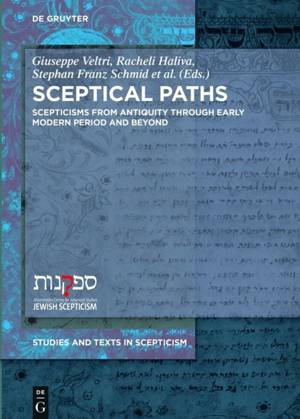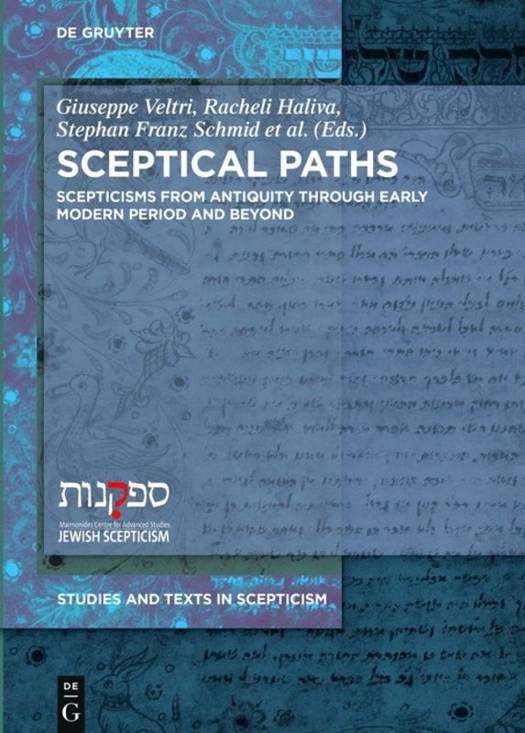
- Retrait gratuit dans votre magasin Club
- 7.000.000 titres dans notre catalogue
- Payer en toute sécurité
- Toujours un magasin près de chez vous
- Retrait gratuit dans votre magasin Club
- 7.000.0000 titres dans notre catalogue
- Payer en toute sécurité
- Toujours un magasin près de chez vous
Sceptical Paths
Enquiry and Doubt from Antiquity to the Present
Description
Sceptical Paths offers a fresh look at key junctions in the history of scepticism. Throughout this collection, key figures are reinterpreted, key arguments are reassessed, lesser-known figures are reintroduced, accepted distinctions are challenged, and new ideas are explored.
The historiography of scepticism is usually based on a distinction between ancient and modern. The former is understood as a way of life which focuses on enquiry, whereas the latter is taken to be an epistemological approach which focuses on doubt. The studies in Sceptical Paths not only deepen the understanding of these approaches, but also show how ancient sceptical ideas find their way into modern thought, and modern sceptical ideas are anticipated in ancient thought. Within this state of affairs, the presence of sceptical arguments within Medieval philosophy is reflected in full force, not only enriching the historical narrative, but also introducing another layer to the sceptical discourse, namely its employment within theological settings.
The various studies in this book exhibit the rich variety of expression in which scepticism manifests itself within various context and set against various philosophical and religious doctrines, schools, and approaches.
Spécifications
Parties prenantes
- Editeur:
Contenu
- Nombre de pages :
- 232
- Langue:
- Anglais
- Collection :
- Tome:
- n° 6
Caractéristiques
- EAN:
- 9783110589603
- Date de parution :
- 02-09-19
- Format:
- Livre relié
- Format numérique:
- Genaaid
- Dimensions :
- 175 mm x 244 mm
- Poids :
- 521 g

Les avis
Nous publions uniquement les avis qui respectent les conditions requises. Consultez nos conditions pour les avis.





